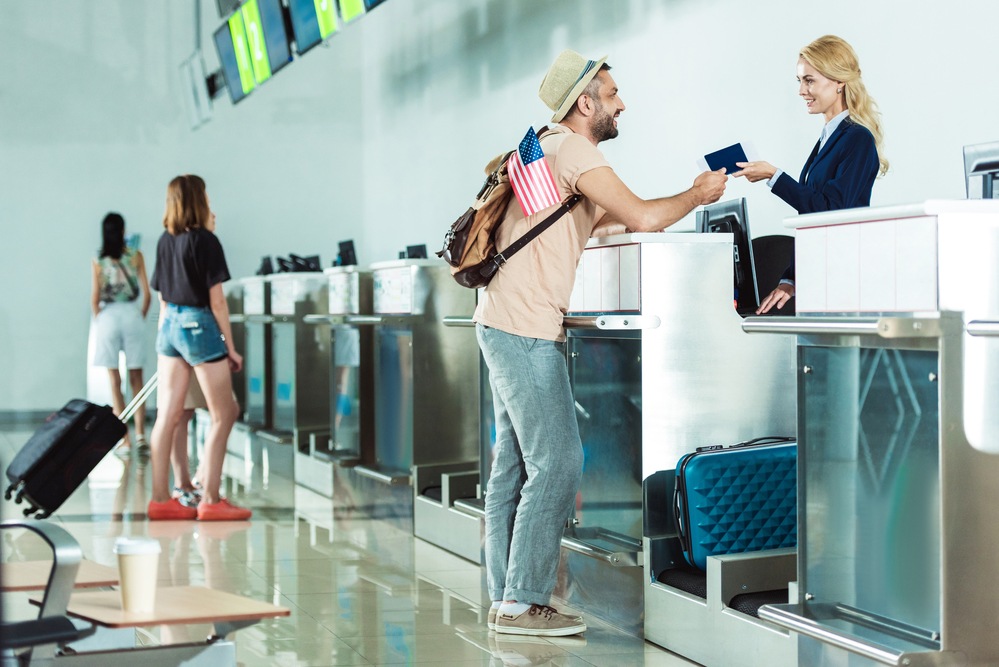Business
In travel, what’s next for consumer-friendly legislation?
Travelers are hoping new legislation would address some of their pain points as most of today’s laws still favor businesses.

The travel industry is strictly regulated for health and safety, a fact for which we should all be grateful. But when it comes to consumer protection — and comfort — most laws still favor businesses.
What do passengers say they want? Transparent pricing. Fair business practices. And a little more legroom on the plane, please.
In recent years, efforts to make those things happen have met with mixed results. Here’s where they stand as we head into the summer travel season:
Consumer advocates such as John Breyault, a vice president of the National Consumers League, are pushing for legislation that would relieve one of the biggest pain points for travelers: out-of-control add-on fees, known in airline-speak as “ancillary fees.” The legislation is called the FAIR Fees Act, and it nearly passed last year.
The FAIR Fees Act would require that cancellation fees, baggage fees and other fees be “reasonable and proportional” to the costs incurred by airlines. It received bipartisan support in the Senate; ultimately, a huge lobbying campaign against it by the airlines doomed it.
NCL’s last public effort was a joint letter signed by several consumer advocacy organizations asking for FAIR’s provisions to be included in the latest Federal Aviation Administration reauthorization bill. It was unsuccessful, but the organization’s efforts are ongoing. “There is a new impetus for this,” Breyault told me. The latest Aeroflot disaster, in which some passengers grabbed luggage from overhead bins before evacuating the plane, is putting the focus back on added fees, especially for checked baggage.
Kevin Mitchell, whose Business Travel Coalition represents corporate travelers, says airline alliances also deserve some legislative attention. The Transportation Department exempts airlines from U.S. antitrust laws, which allows them to establish code-sharing agreements to jointly operate flights. (When you see a notation next to your flight itinerary that says operated by that’s usually a code-share flight.) Mitchell says code-sharing has hurt competition on many routes and needs to be reined in.
“Those alliances went from 41 percent market share in the U.S.-to-Europe market in 2000 to some 90 percent today,” he says. That sent airfares soaring by more than 20 percent. Mitchell says if airlines lost their antitrust immunity, it might increase competition and lower fares. He is lobbying Congress to take a closer look at airline immunity and says the effort is ongoing.
Hotels are under scrutiny from consumer advocates because of mandatory resort fees. The American Society of Travel Advisors (ASTA) says a survey it commissioned found that 61 percent of American travelers oppose these fees, which are often charged in addition to the advertised price.
“We support transparency in travel pricing,” says Eben Peck, ASTA’s executive vice president for advocacy. “Hidden resort fees violate that principle.”
The Truth in Hotel Advertising Act, introduced in 2016 by then-Sen. Claire McCaskill (D-Mo.) was the opening salvo in a war on resort fees. The bill seems to have gone the way of McCaskill, but Peck says organizations such as ASTA will continue to fight for a legislative solution.
There’s also a grass-roots effort called Kill Resort Fees that has been applying steady pressure to the biggest offenders. Some resorts, including the SLS Las Vegas, Golden Nugget and Red Rock Resort in Las Vegas, have launched marketing campaigns in recent months offering rooms without resort fees.
Other travel industry practices have not been targeted by legislation, but should be. They include fraudulent rental car repair bills, for example, which I’ve been tracking for years. I believed that intense public pressure and lawsuits had all but eliminated the practice, but recent correspondence with readers such as David Howe, who is entangled in a long-running dispute with Enterprise, suggests that this is not the case. Howe, who owns a credit-consulting company in Massillon, Ohio, wants to lobby for a comprehensive law that would make frivolous car-rental damage claims illegal.
People often ask me if there’s one law that might fix all of these problems at once. Unfortunately, no. But a stricter price-disclosure law would address many of them. In Australia, businesses must “clearly” disclose an all-in price at the beginning of the purchase. Consumers can report violations to the Australian Competition and Consumer Commission, the country’s consumer-protection and competition agency, which can lead to enforcement action. The U.S. Federal Trade Commission could require an inclusive price, but so far it hasn’t.
A stricter price-disclosure rule would end a lot of shenanigans with hotel resort fees and airline ancillary fees. It might even protect consumers like Howe, who was charged extra after he returned a rental vehicle.

But maybe the right place to start would be enforcing laws already on the books. In 2016, Congress passed a law that requires airlines to seat children 13 or younger with a family member older than 13 at no additional cost. Airlines opposed the law because it would interfere with their ability to make money from the sale of pre-assigned seats. So far, the Transportation Department hasn’t created the necessary regulation to enforce the law.
Congress passed a law in October that requires the FAA to set minimum airline seat sizes. Seat-size complaints are among the most common ones about air travel, and a new minimum could provide much-needed relief to travelers. An FAA spokesman said the agency is “aware of the congressional mandate” but has not set a rulemaking schedule. It has until Oct. 5 to do so.
So here we are, approaching the beginning of summer, with the same scant consumer protections we had last summer. Advocates are waging a lonely fight to strengthen our consumer laws and regulations. Let’s hope they’ll have something to show for it by this time next year.
(Featured image by DepositPhotos)
—
DISCLAIMER: This article expresses my own ideas and opinions. Any information I have shared are from sources that I believe to be reliable and accurate. I did not receive any financial compensation for writing this post, nor do I own any shares in any company I’ve mentioned. I encourage any reader to do their own diligent research first before making any investment decisions.

-

 Crypto1 week ago
Crypto1 week agoThe Crypto Market Rally Signals Possible Breakout Amid Political Support and Cautious Retail Sentiment
-

 Crypto4 days ago
Crypto4 days agoBitcoin Hits New Highs in USD, But Euro Investors See Limited Gains
-

 Crypto2 weeks ago
Crypto2 weeks agoXRP vs. Litecoin: The Race for the Next Crypto ETF Heats Up
-

 Crypto1 day ago
Crypto1 day agoCrypto Markets Surge on Inflation Optimism and Rate Cut Hopes

























